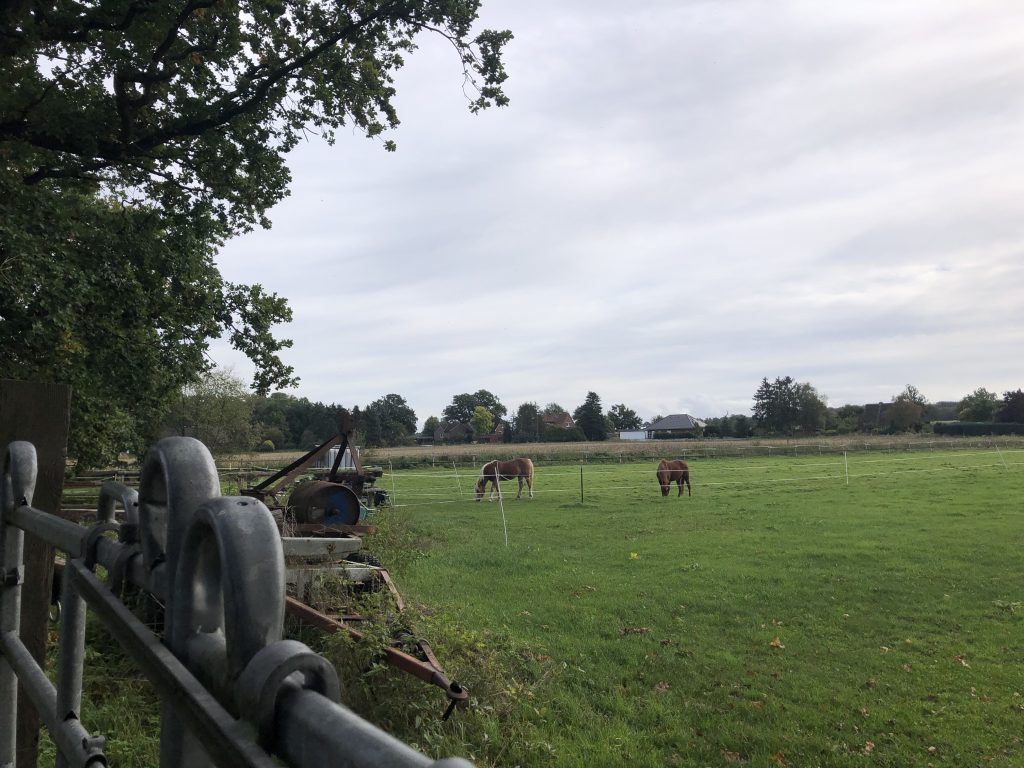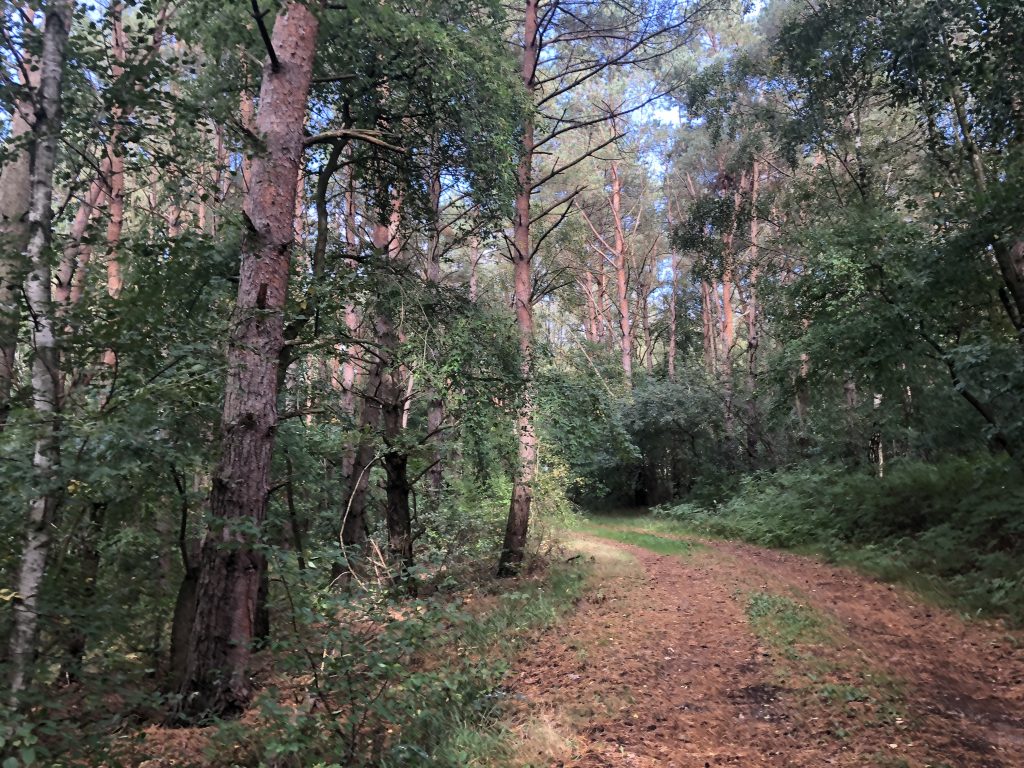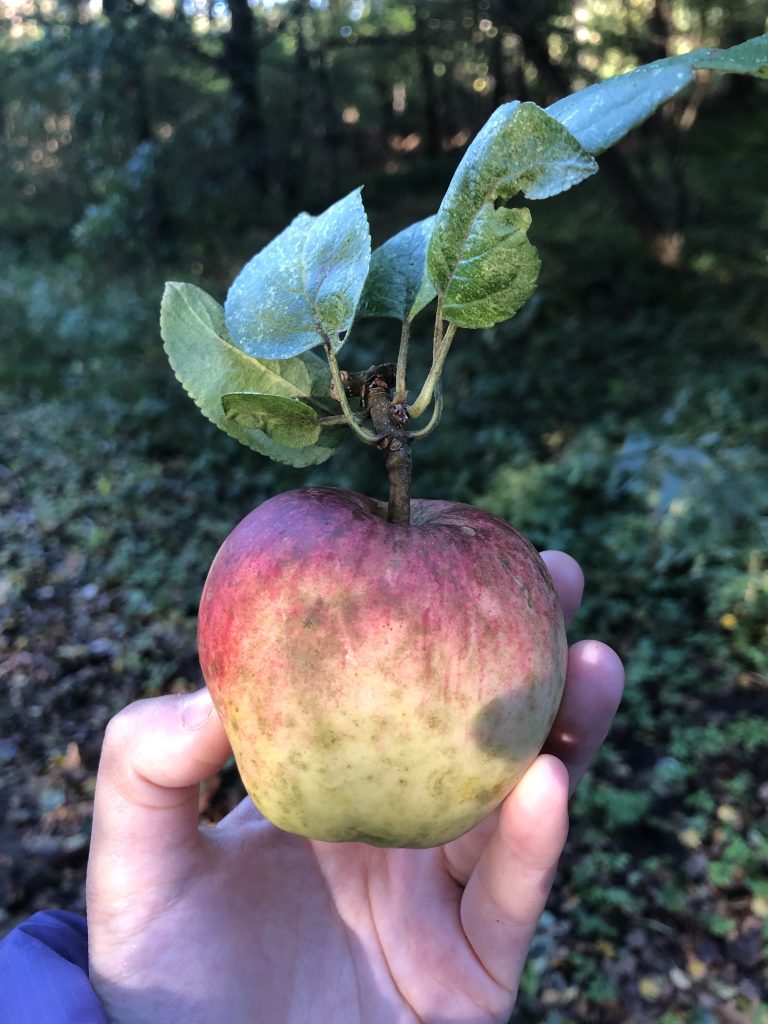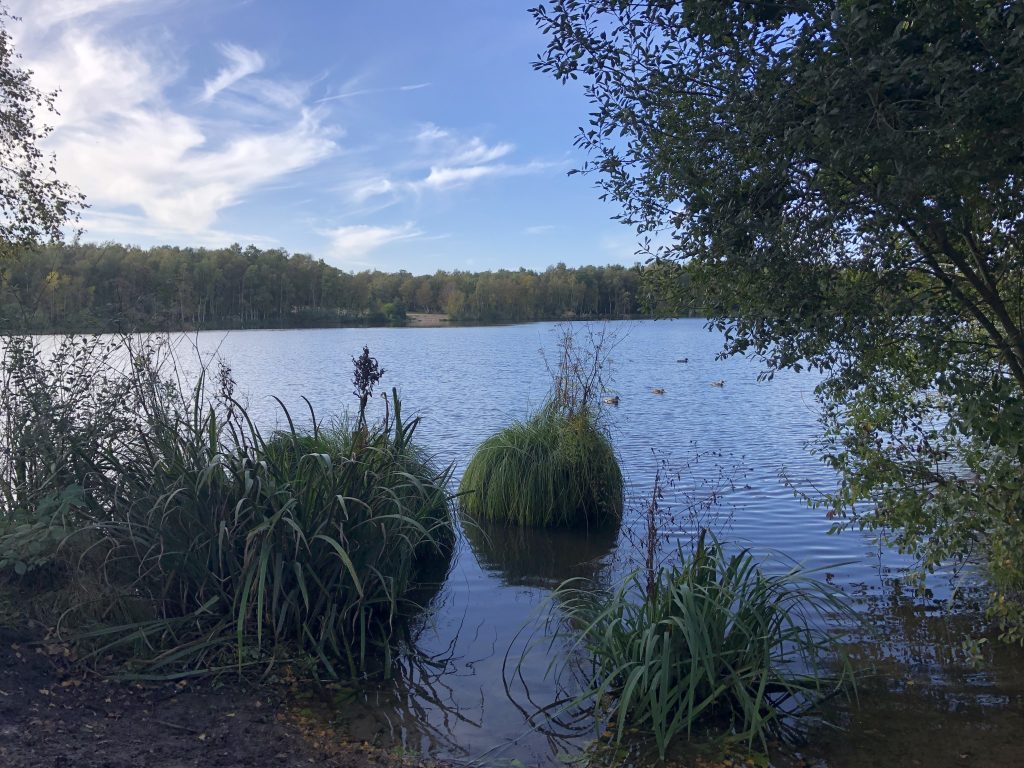Junyi Bu
October 18, 2023
On clear days, I fervently embrace the unofficial, national German pastime of walking. In the countryside, it’s easy to walk – a brisk stroll nearby reveals a pasture with a grazing mare.

Near Seevetal, we leave no Landschaftsschutzgebiet – land protection reserve – unvisited. Under the protection of the spruce canopy, we encounter local mushroom foragers, fishermen, and countless varieties of fungi. Mario Bros-esque red caps pop through the detritus, firmly rooted in sodden moss.
We test our aim and take turns chucking fallen branches at a wild apple tree. The forest chuckles at me as I miss for the umpteenth time and accidentally lob my – now unretrievable – throwing branch deep into the forest. Eventually, we are rewarded for our efforts, as the tree gifts us with a few misshapen fruits.



Recently, I can be seen swaddled in thick layers as we obsessively lüften – ventilate – the cellar to prevent mold. German windows are designed for the compulsory love of lüften – turn the window handle horizontally and the entire window swings open on a hinge like a portal to the outside. I invite the small critters that turn up at our windows to come in – the wayward red squirrel, a neighbour’s Persian cat, songbirds – although they seem happier outside.
First-hand Account of My First Mock Trial
In an unfiltered moment, I blurt, “I think we should do a mock trial!”
To this statement, there is a surprising resounding agreement that a mock trial would enhance students’ understanding of the yearly topic: crime and punishment.
“Let’s do it.”
I don’t know a single thing about how trials work.
For the mock trial, we identify several learning outcomes: to learn the procedure of a typical trial, to prompt critical thinking, improve student speaking skills, and to formulate a speech based on provided evidence.
First, I learn all I can absorb about how a trial works, armed with an afternoon, a glass of sparkling apple juice and a David Attenborough penguin documentary as background noise. With maximum drama in mind, we curate an entire metaverse where the students’ teacher (also conveniently our supervisor) is accused of first degree murder, determine roles, and create info-sheets for each role (e.g. witnesses, lawyers, detective etc.).
I look at Jane, across a box of Haribos on the table.
“Is this even going to work?”
She shrugs nonchalantly and returns to typing.
This assignment is a challenge for us.
Behind the scenes, we navigate key design issues:
- How many people for each role and how will we assign roles?
- How do we engage jurors? (Assign additional roles like timekeeper, court artist etc.)
- How do we keep the pacing? (We decide to be the judges to ensure that we can lead the trial)
- What is the story and which role receives what information?
- How is this even going to work?
After briefing students on the process of how the trial works, we rearrange the class to simulate a courtroom and pass out the information sheets. Students have a block of time to investigate what they know in their roles. We run into an unprecedented situation: our prosecution and defense lawyer teams dig further than the information we provided the witnesses.
“A question to the school janitor, do you teach staff how to dilute the floor cleaner correctly and at what concentration do you do so?”
“Yes, all staff are required to be at the safety meeting and as for concentration…?” The janitor starts. “-Do I know this?” She turns to me.
“You can make it up!” I frantically whisper, because I have no idea either.
The day’s engagement from students indicates that we have successfully created an authentic task, as students dive deeply into the task of persecuting or defending their teacher and embody their respective roles.
In the last two weeks, I have taken on the pace of a rural German lifestyle and have gotten all my steps in. I am looking forward to the rest of the month to come!
